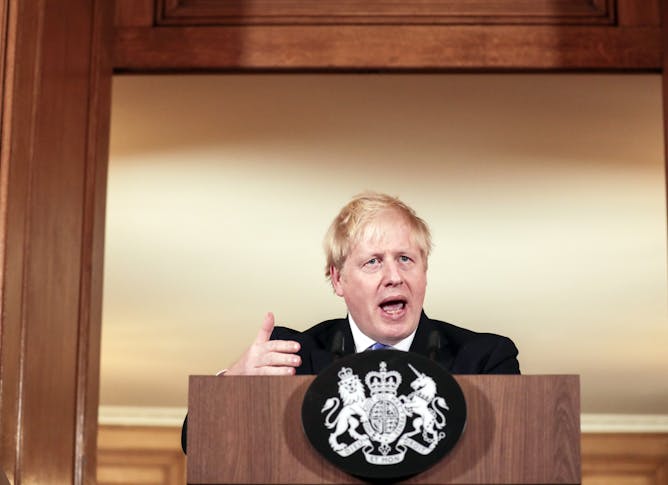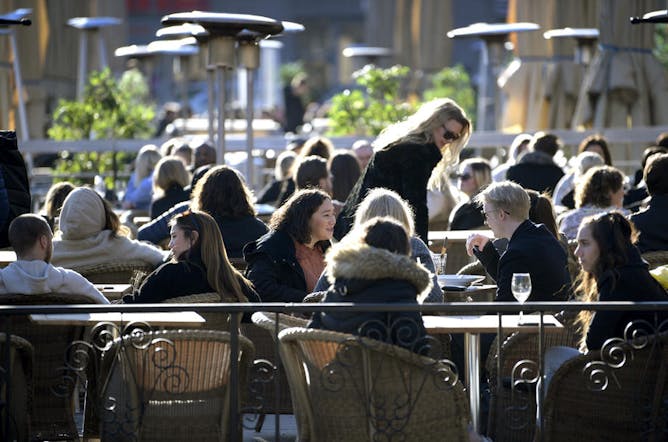|
|
|
Editor's note
|
|
For most of us in the UK who are able to work from home, it’s the end of our first week under lockdown. It’s a stressful time for everyone. I don’t mind admitting that I’m pretty scared. I won’t bore you with the details but I’m one of the “especially vulnerable” cohort of people with an underlying health condition who received a notification from the NHS telling us to remain under stringent self-isolation for the next 12 weeks and it has shaken me up considerably.
But anyone monitoring the regular media or social media sites, is also likely to be feeling the stress of the constant drip feed of alarming reports – it’s hard to escape, yet it’s equally vital we find ways of focusing on more positive things.
We can help. Alongside our comprehensive coverage of all aspects of the coronavirus emergency, you’ll find stories from the world of arts, culture, science and society to remind you there’s an exciting and ever-changing world beyond the confines of our homes. Most of us have got more time on our hands, so why not let our experts in the world of books, music, film, TV and drama recommend some of their favourite things?
Meanwhile we’ll continue to provide context and perspective, such as this account by a scholar of medieval history of the “anchorites”, women who locked themselves away to get closer to god, or the Swedish
approach to countering the virus and why it is more relaxed.
From our global network, read about revered American author Henry David Thoreau who famously shut himself away in the woods in Massachusetts, tips to improve your virtual catch-ups and book groups and,
from Africa, a touching tribute to the legendary “Afropolitan” musician, Manu Dibango who passed away this week.
|
Jonathan Este
Associate Editor, Arts + Culture Editor
|

|
|
|
|

Enclosing of an anchoress (14th century).
Cambridge, Corpus Christi College, MS 079: Pontifical
Godelinde Gertrude Perk, University of Oxford
Some medieval Christian women locked themselves away in the name of their faith. Here are their insights into self-isolation.
|

Johnson has tested positive, along with several other key figures.
EPA
Martin Farr, Newcastle University
The particulars of the British political system come into play at times like these.
|

Outdoor restaurant at a square in central Stockholm, Sweden, 26 March 2020.
EPA-EFE/Janerik Henriksson
Paul Franks, Lund University; Peter M Nilsson, Lund University
Swedish authorities estimate that there are more people with COVID-19 who don't show symptoms than those in other countries.
|

Alex Dummer/Unsplash
Tauel Harper, University of Western Australia
Virtual meetings, from work chats to reading groups, have become commonplace during the coronavirus pandemic. But if you’re finding communication feels different in this setting, you’re not alone
|

Never get’s old: dad’s Army.
BBC Pictures
Alec Charles, University of Winchester
In times like these, sometimes having a good laugh is the only thing to do.
|
|
|
-
Kaili Rimfeld, King's College London; Margherita Malanchini, Queen Mary University of London; Robert Plomin, King's College London
Our research found that teacher assessments and exam scores match closely for maths, English and science.
-
Francis Nyamnjoh, University of Cape Town
One of the greatest artists ever to emerge from Cameroon had a fraught relationship with his homeland – but because of it touched all corners of Africa and the world.
-
Robert M. Thorson, University of Connecticut
'Walden,' published in 1854, is a manual for solitude with a purpose.
-
Adam Hawkey, Solent University
Use tins of beans, use a coat, use your kids ... it's all about being creative with the space you've got.
-
Ignacio López-Goñi, Universidad de Navarra
While there is no cure for COVID-19, dozens of clinical trials are underway to test retroviral medicines and potential vaccines targeting the novel coronavirus.
|
|
| |
Featured events
|

|
Future Technology Centre, Portland Street, Portsmouth, Hampshire, PO1 3AH, United Kingdom of Great Britain and Northern Ireland — University of Portsmouth
|

|
Julian Study Centre Lecture Theatre, University of East Anglia, Norwich, Norfolk, NR4 7TJ, United Kingdom of Great Britain and Northern Ireland — University of East Anglia
|
|
|
|
| |
| |
| |
| |
| |
|
|
|
|
|
|
|